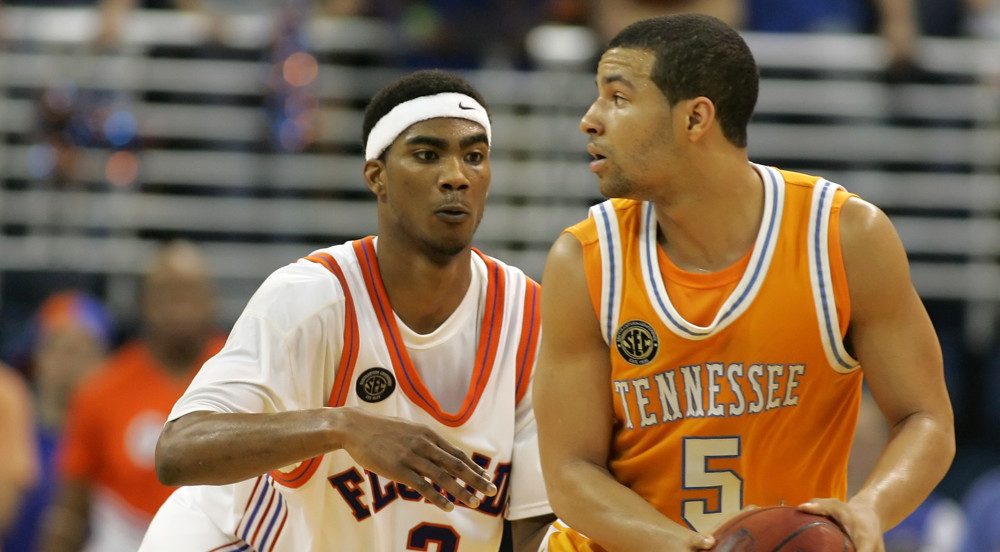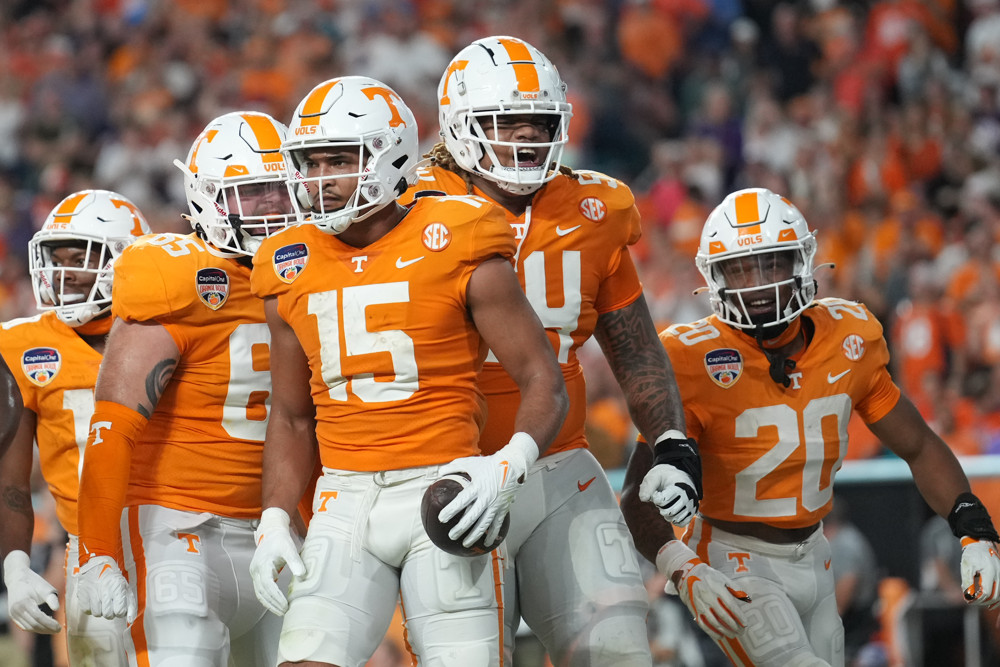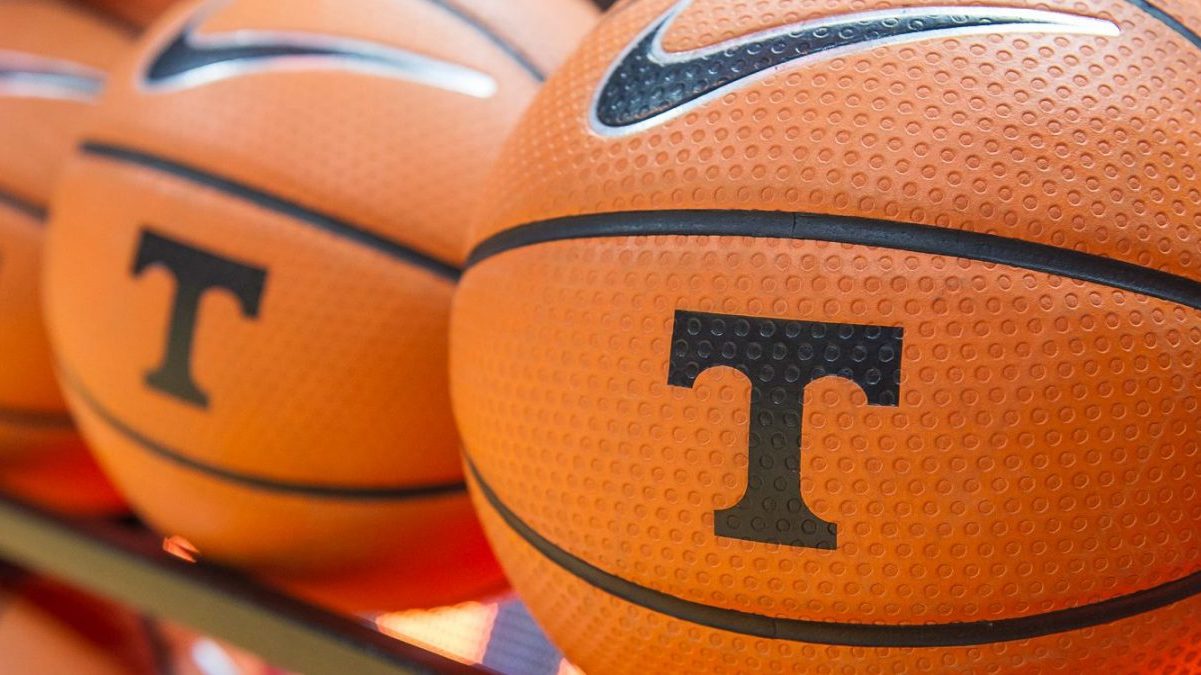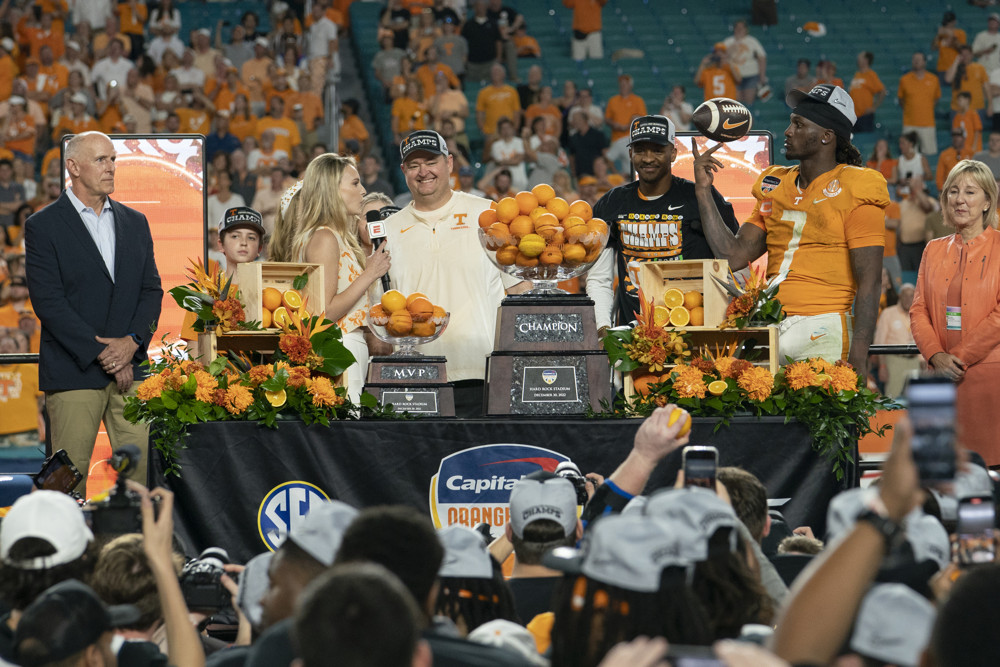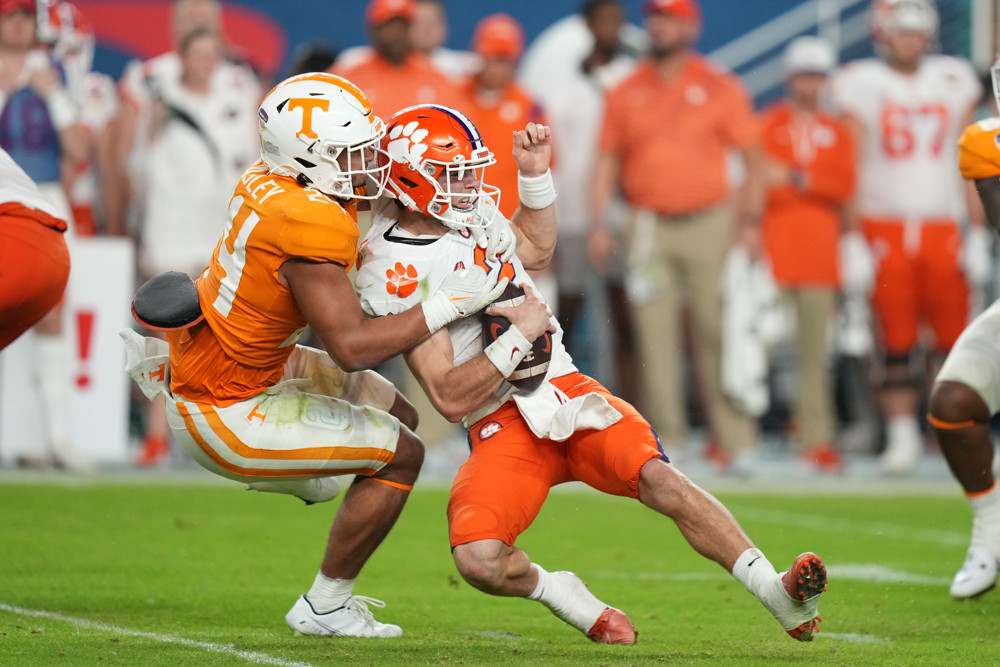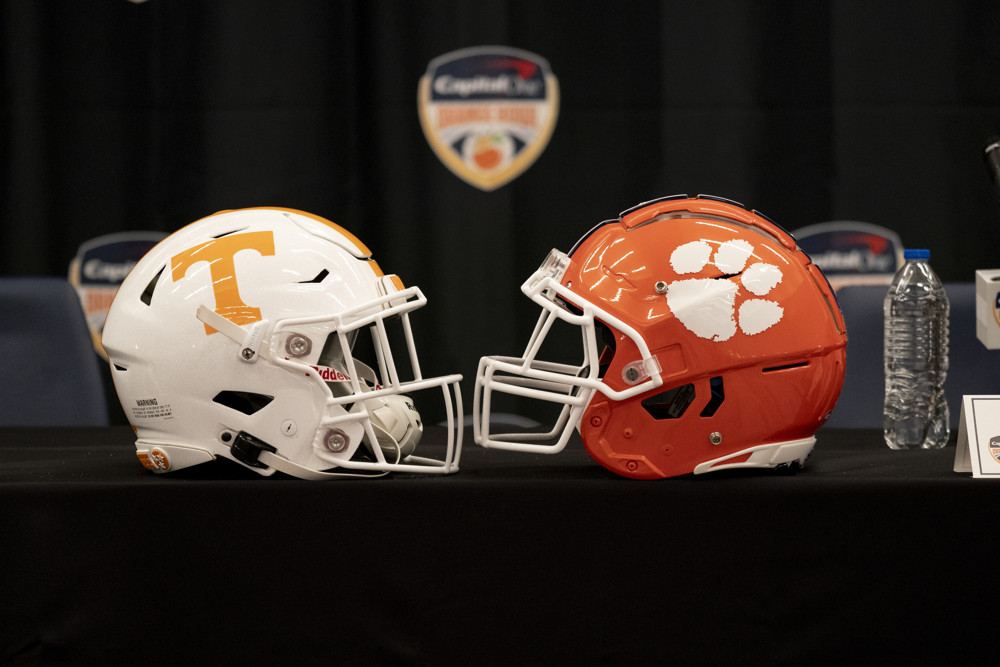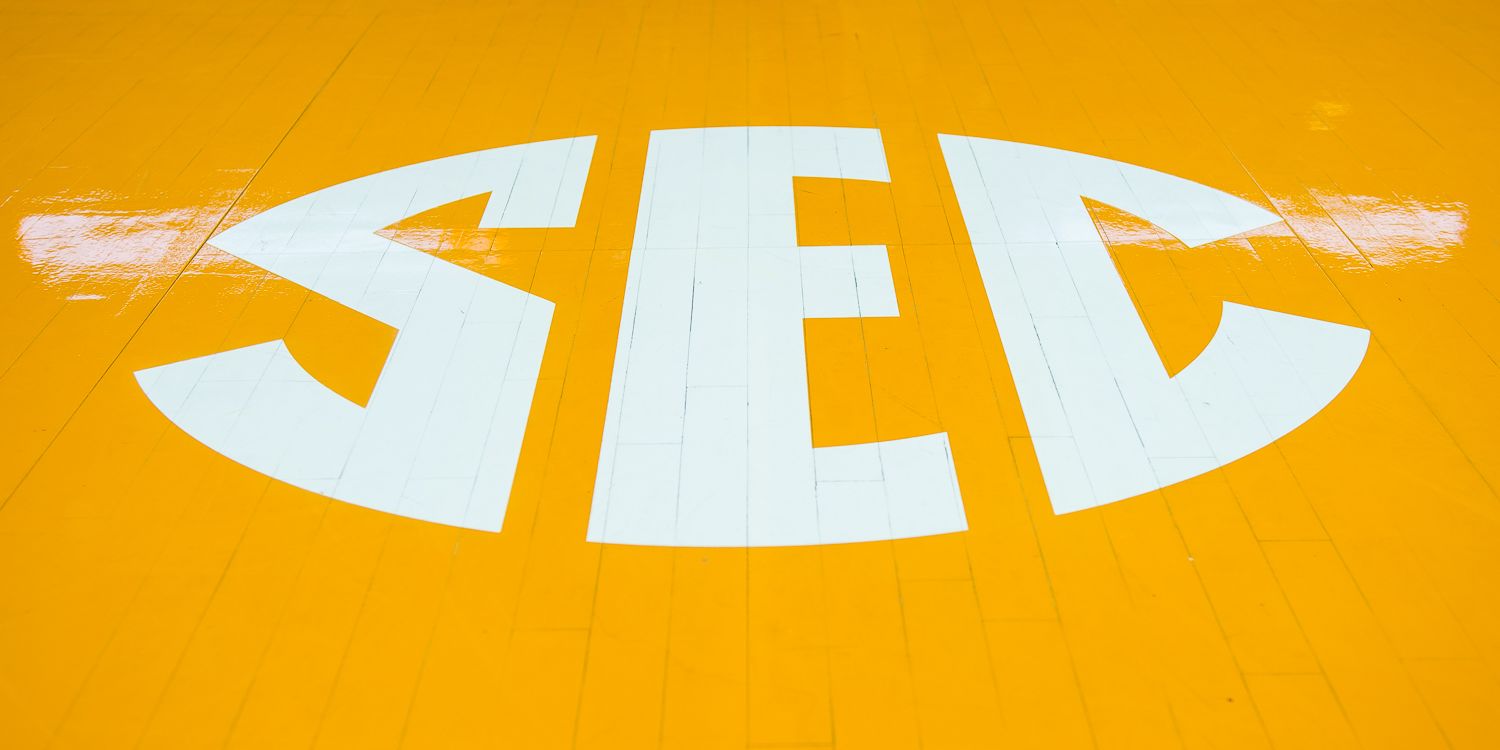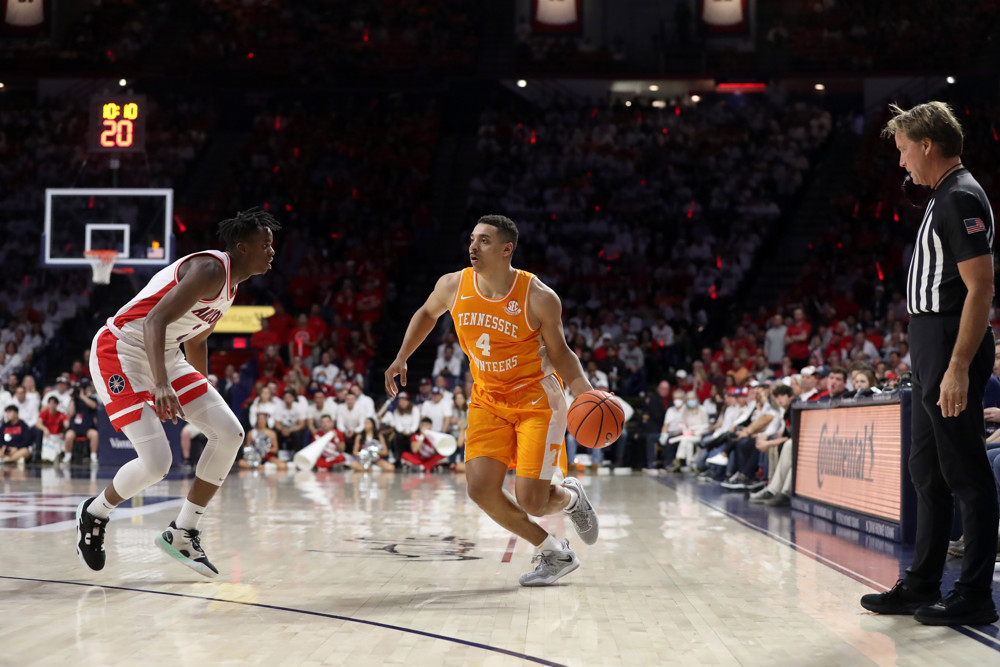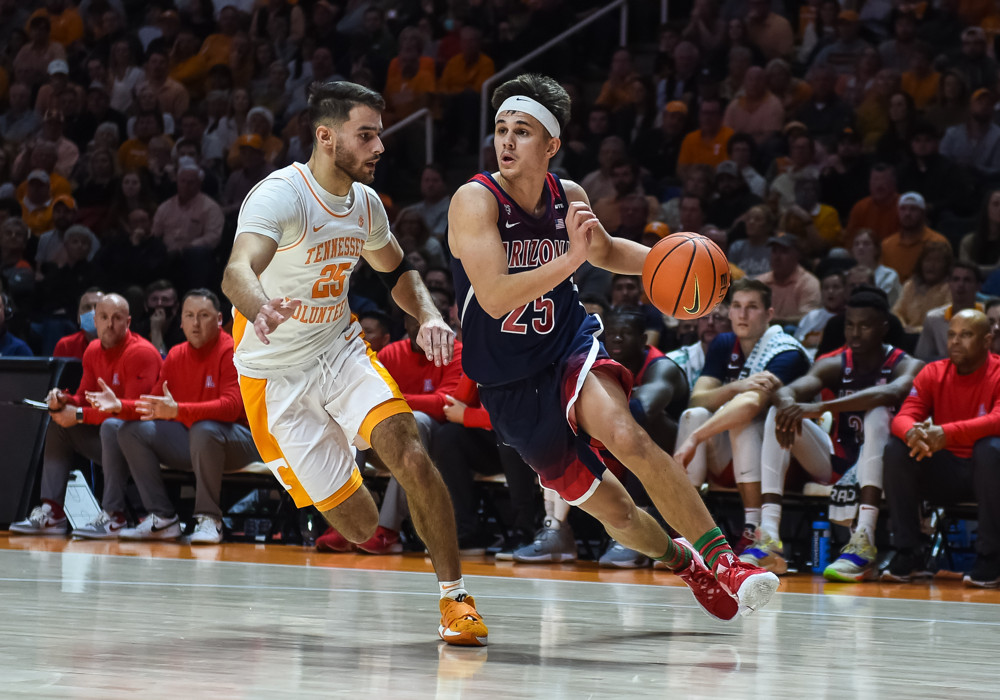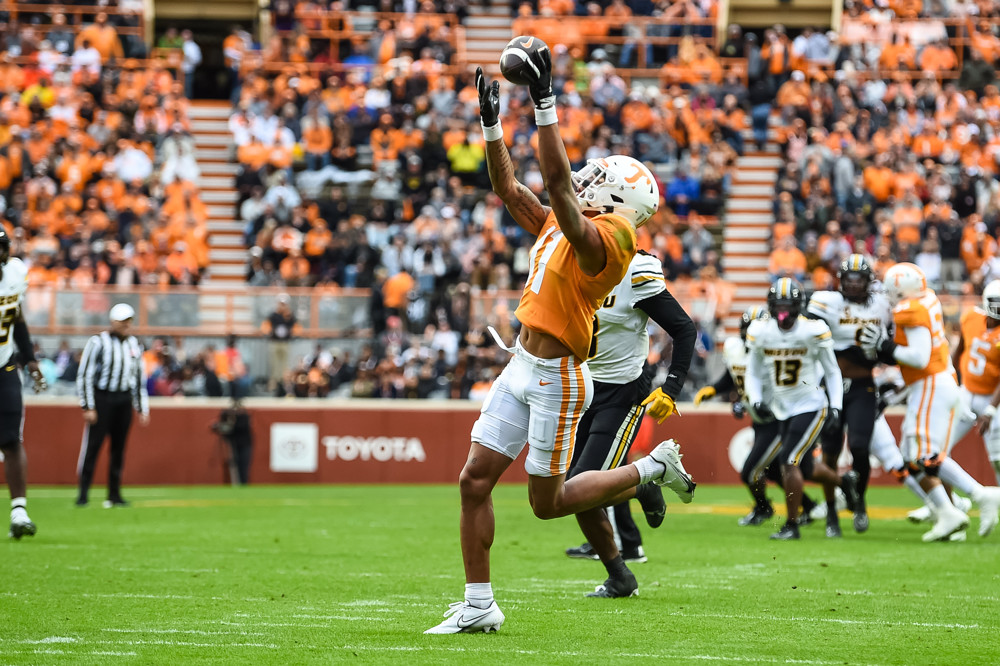One of the most important things for any team is believing you can win today.
Not tomorrow, though that’s a critical part of the same process. But there is a realized investment, at least from a fan perspective, in turning on the TV or scanning your ticket believing your team can win.
When you don’t, belief downgrades to curiosity. And if you don’t long enough, curiosity can be replaced with apathy. With nothingness.
Chris Lofton was a freshman in the 2004-05 season, when the Vols had missed the NCAA Tournament three years in a row. They brought almost everyone back from the previous year, 15-13 (7-9) with a first-round loss in the NIT.
Lofton was an immediate difference maker from the arc, shooting 46.5% while teams figured out who this freshman from Maysville, Kentucky was. He helped the Vols beat Florida in Gainesville in overtime on January 19, moving to 10-7 (3-2). But Tennessee lost seven of its next eight, removing the Vols from even the NIT picture.
It wasn’t an automatic decision to move on from Buzz Peterson at the time, which speaks to both the culture of college athletics 18 years ago and the culture of basketball at Tennessee. He was ultimately replaced with Bruce Pearl, who would go on to do all the Bruce Pearl things. But at first, I remember apathy more than anything else. When his first season began on November 18, 2005, a really difficult football season was winding to its close, ultimately finishing with a loss to Jay Cutler’s Vanderbilt. A season we entered with full-throated we-will-win-today belief endured a quarterback controversy and a 5-6 finish.
When football was hard in many seasons to come, there was almost always the opportunity to pivot to basketball: a meaningful opportunity to carry us through the winter and a belief that we could win in March, no matter what happened in the fall.
In November of 2005, that did not exist. And it has existed almost every season since then for 17 years.
And no player is more responsible for its existence at Tennessee than Chris Lofton.
Those Vols started 5-0 by way of ETSU, Louisiana Lafayette, Eastern Kentucky, Murray State, and Appalachian State. They went to #6 Texas on December 17. The fast start was appreciated, but there was little belief and I’m not even sure on curiosity.
And Tennessee won by 17 points.
To this day, it is the best example I know of in any Tennessee sport in my lifetime of how belief is always possible, its first steps always just one win away. It happened in large part because Chris Lofton had 21 points on 5-of-9 from the arc (also, shout out JaJuan Smith, who came off the bench with back-to-back threes to push a 10-point Tennessee lead to 16 early on, the definitive whoa moment of the game). Rick Barnes talked about this game this week, including the loss of Daniel Gibson to a concussion and Texas’ scramble to replace him.
Those Vols got your attention at Texas, and kept it through the start of SEC play at 11-3 (2-1). They welcomed #2 Florida on January 21, 2006. Everyone has their own opinions on what’s the loudest game in Thompson-Boling; my money stays with this one, for the sounds of sheer bewilderment that come when you believe you might win, and then realize as it’s happening in real time that it’s true. Lofton had 29 points and the steal that helped win it, firing back to Dane Bradshaw on the other end for a layup and the lead with 20 seconds to play. Two months earlier on the calendar, there was nothing. And now, there was everything.
There were, as I’m sure you know, many other famous Lofton moments to come. The shot over Kevin Durant, the win at Memphis, an SEC Championship…and even the shot against Winthrop at the end of this first season. A 34 points on 18 shots game against Memphis in Knoxville in December 2006, still the greatest individual basketball performance I’ve ever seen at UT. And the silent battle with cancer that speaks so much more about Lofton as a human being.
But on the court, to me some of the most memorable and most meaningful work Chris Lofton did came in this part, in Pearl’s first regular season and his second. The surprise in Austin, the validation against the Gators. And then the less exciting but just-as-important work that came next: making belief normal.
The Florida win became the first of eight in a row. Only one of the next seven became really famous: at Rupp Arena against Rajon Rondo’s Cats, Lofton hit 7-of-10 from the arc, 31 points, and the Vols got their first win in Lexington sine 1999.
But the other six wins in that streak happened in large part because Lofton willed them to: 33 points at Georgia the next night out after Rupp, 25 against Auburn after that. In those three games, Lofton shot 23-of-33 from the arc. That’s 69.6%. Seventeen years and Steph Curry and all that has changed in basketball later, I still struggle to make that compute.
That’s what it was like to watch Lofton: your eyes followed him on every offensive possession. No shot was too deep. And when he let it go, you believed.
Over the course of his career, joined by so many memorable teammates and a coach we certainly loved, you believed in not just Lofton, but Tennessee.
In football, we’re seeing it happen again now, in real time.
In basketball, we’ve never stopped.
The NCAA Tournament expanded to 64 teams in 1985. The Vols made it just five times in the next 21 years, 23.8%. Since Chris Lofton and the Vols arrived on the national stage in 2006, the Vols have made 11 of the last 16 tournaments, 68.9%.
They made you believe we could win every night. That belief remained throughout Lofton’s entire career, accentuated by a trip atop the polls in 2008. It passed from Bruce Pearl to Cuonzo Martin, some of that era defined by a frustration to win the way we believed we could. And even at its lowest points since then, in the transition from Donnie Tyndall to Rick Barnes, the seeds of that belief were always there. And today, Tennessee basketball currently enjoys its highest KenPom rating in program history, and could go to number one tomorrow, fittingly, against Kentucky.
We believe we can win, against anyone.
No one played a bigger role in that belief than Chris Lofton. As much as any accomplishment, of which there are so many, that is a defining part of his legacy. And there is no better reason to be joining those in the rafters at Thompson-Boling.
